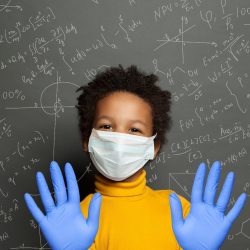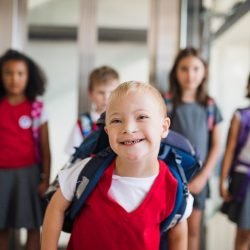Active learning can continue at home and during holidays
New experiences and experiences – such as a trip, a cultural activity or even reading and an interest in something – lead to processes of investigation and reflection that help in the expansion of knowledge

Active learning, in which research takes on a central role and students build their knowledge from meaningful activities, is not restricted to the classroom or school. It can occur, for example, at home and during holidays.
“Much of what we understand by active learning is already happening at home. When the student is doing an experiment, like learning how to bake a cake with his parents, and they start asking questions and telling stories and knowledge, they are already doing it with a small expedition [educational project that integrates several active methodologies and that invites the students to solve real life problems] ”, says Leticia Lyle, Co-founder of Camino Education and pedagogical director of Camino School.
She explains that new experiences, diverse experiences and the questions that arise from these situations, can lead to deeper research processes that will help in learning. “Through playing, being interested in something, research and exploration – which parents can help by adding good questions and guiding questions – and, later, reflection, students continue this learning process.”
According to the director, some studies show the importance of continuing to build these skills and competences throughout the vacation period – knowing how to question, knowing how to evaluate, knowing how to reflect – as they are essential tools for life. “When we are in other places, we have a fertile ground for that. A trip and even a different cultural activity stimulate questioning and active learning. Books are also a way of bringing that about. ”
'Hands-on' on vacation stimulates learning
Leticia points out that, often, on vacation, students may only want to play video games or do activities in which they are a little more passive. “The idea is that if we manage to bring a little more 'hands-on', exposure to new elements, we are encouraging the child's mind to ask more questions. And this inquisitive and reflective mind stimulates not only cognitive skills, but socio-emotional ones, and it certainly brings learning gains in several fields. ” These gains will not necessarily be in a specific discipline, but that knowledge will be there and, eventually, in the future, this is the raw material that the student will use to learn more complex concepts.
At Cloe, the digital platform of Camino Education, there are activities that promote active learning and can be mediated and conducted by parents, for children up to 12 years old. “Even targeted activities, such as reviewing expeditions that have already been carried out, can help,” says the director. For family members who are looking for suggestions for educational activities, Cloe has provided a schedule for children aged 2 to 12 years on the link .
According to her, active learning helps the student to gain repertoire, which is of great importance in this phase in which it is growing and developing. “It is very worthwhile that, during the holidays, we continue to look for some ways to promote this. We can all mediate this active learning process. This without forgetting the importance of playing, of free play, which is where passions and interests are born. ”













